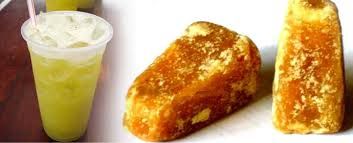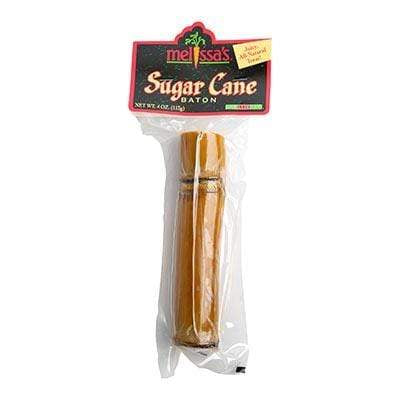Sustainable Sugarcane Products: From Sweeteners to Eco-Friendly Item
The potential of lasting sugarcane products expands beyond typical sweeteners to encompass a variety of environmentally friendly items, providing an engaging situation for their integration right into contemporary customer methods. As the globe grapples with pressing ecological concerns, sugarcane arises as a flexible source capable of resolving both dietary requirements and sustainability goals.
Introduction of Sugarcane Sustainability
As the need for ecologically pleasant products grows, recognizing sugarcane sustainability becomes significantly important. Sugarcane, a flexible plant, is cultivated mostly in exotic and subtropical areas, and its sustainability is crucial for both environmental wellness and financial practicality. Lasting sugarcane farming techniques focus on lessening eco-friendly impact while maximizing efficiency and earnings.
Trick aspects of sugarcane sustainability include effective land usage, lowered chemical input, and improved water management. Practices such as crop turning, incorporated parasite monitoring, and natural fertilization contribute to soil health and biodiversity. Furthermore, cutting-edge modern technologies, such as precision agriculture, help enhance resource use and minimize waste.
In addition, sugarcane is a renewable energy, with by-products that can be utilized in various industries, from biofuels to naturally degradable plastics, consequently minimizing dependence on fossil gas and lessening carbon impacts. Qualifications like the Bonsucro typical urge lasting techniques throughout the supply chain, promoting transparency and accountability.

Sugarcane-Based Sweeteners
Utilizing sugarcane as a primary resource, sugarcane-based sugar have gained prominence as all-natural options to man-made sweeteners and polished sugars (sugarcane product). These sweeteners, originated from the removal and handling of sugarcane juice, offer an array of products that accommodate diverse customer choices, including natural and minimally processed options
Raw walking cane sugar maintains even more of the natural tastes and nutrients found in sugarcane, making it a preferred selection for health-conscious consumers. Panela, a typical Latin American sugar, is generated by evaporating sugarcane juice, maintaining its natural minerals and vitamins.
The expanding demand for sugarcane-based sugar is driven by raising awareness of wellness and sustainability concerns related to conventional sweeteners. By selecting sugarcane-derived products, consumers not only sustain lasting agricultural methods yet also contribute to a much healthier way of living, aligning their dietary options with their ecological worths.
Biodegradable Packaging Solutions
Arising as a practical choice to standard plastics, biodegradable packaging services stemmed from sugarcane are changing the product packaging sector. These cutting-edge materials provide an ecologically friendly choice that attends to the expanding problems over plastic air pollution. Making use of the all-natural sugars located in sugarcane, manufacturers are developing various forms of biodegradable packaging, including movies, containers, and covers that decay extra swiftly than standard plastics.
The primary benefits of sugarcane-based product packaging hinge on its eco-friendly sourcing and its capacity to damage down into non-toxic byproducts. Unlike fossil fuel-derived plastics, which can continue the setting for centuries, sugarcane product packaging normally learn the facts here now disintegrates within a few months under appropriate conditions. This decrease in waste not just alleviates landfill overflow but additionally lowers the carbon footprint associated with packaging products.
Additionally, sugarcane-derived packaging maintains durable performance characteristics, offering equivalent longevity and performance to conventional choices. As consumers and organizations progressively prioritize sustainability, the fostering of biodegradable packaging solutions stands for a considerable action in the direction of a circular economic situation, where materials are reused and regrowed rather than thrown out. This shift not just enhances brand name image yet likewise adds to a much more lasting future for the world.
Eco-Friendly Textiles and Fabrics
Eco-friendly fabrics and fabrics are getting traction in the fashion and home items industries as customers increasingly require lasting alternatives to typical materials. Among the remarkable choices are textiles stemmed from sugarcane, which use an environmentally accountable choice to synthetic fibers. These textiles are created via a process that uses the eco-friendly resources discovered in sugarcane, significantly decreasing dependence on petroleum-based products.

Brand names are significantly incorporating eco-friendly textiles into their line of product, showing a wider dedication to sustainability. This change is not just a fad yet an essential evolution in response to environmental issues. As the market for sustainable textiles expands, consumers can expect innovative designs that combine style with eco-friendly obligation. Inevitably, eco-friendly fabrics and materials stand for a considerable action towards lowering the fashion business's environmental impact while satisfying the growing demand for responsible consumer selections.
Advancements in Sustainable Farming
Revolutionizing farming practices, advancements in lasting farming are visit transforming the method plants are grown and handled. These innovations focus on decreasing environmental effect while maximizing effectiveness and performance.

Moreover, agroecology, which integrates environmental concepts right into farming, advertises biodiversity and soil health. Practices such as crop turning, cover chopping, and intercropping foster resistant ecosystems that can endure parasites and environment variants - sugarcane product. Additionally, using natural fertilizers and biopesticides contributes to much healthier dirts and ecological communities

With each other, these advancements are not just improving the farming landscape yet also contributing to an extra lasting future for sugarcane and other crops, aligning farming exercise with environmental stewardship.
Conclusion
Sustainable sugarcane items represent a substantial development in green options, spanning from all-natural sweeteners to eco-friendly goods. As customer choices increasingly lean in the direction of lasting choices, the convenience of sugarcane as a renewable source comes to be increasingly appropriate.
The possibility of sustainable sugarcane products prolongs past traditional sweeteners to incorporate a variety of eco-friendly items, providing an engaging instance for their integration into contemporary customer techniques. Sustainable sugarcane farming methods focus on decreasing ecological impact while making best use of productivity and earnings.
Lasting sugarcane items stand for a substantial advancement in environmentally friendly options, covering from all-natural sugar to eco-friendly items. The farming of sugarcane via lasting techniques not just boosts ecological wellness yet additionally adds to financial viability. As Visit Website customer choices significantly lean in the direction of lasting choices, the adaptability of sugarcane as an eco-friendly source ends up being progressively appropriate.